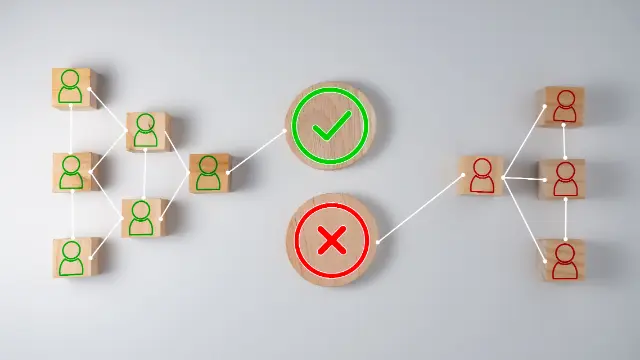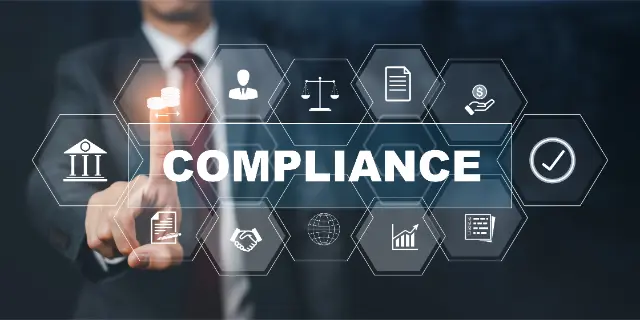Humanizing Reporting & Data Analytics Automation in the Hospitality Industry
In the bustling world of hospitality, data is king. From booking trends to customer demographics and marketing campaign effectiveness, a wealth of information is available to businesses that can help them make informed decisions and drive success. However, manually compiling and analyzing this data can be a time-consuming and error-prone process.
This is where Reporting & Data Analytics Automation comes in. By leveraging the power of Python, AI, and cloud-based solutions, businesses can streamline the reporting and data analysis process, freeing up valuable time and resources. With automated tools, businesses can:
- Generate reports on key metrics in real-time
- Gain insights into customer behavior and preferences
- Track marketing campaign performance and identify areas for improvement
By embracing Reporting & Data Analytics Automation, hospitality businesses can gain a competitive edge by making data-driven decisions that drive revenue, improve customer satisfaction, and optimize operations.

Python, AI, and the Cloud: Supercharging Reporting & Data Analytics Automation
Unattended Bots: The Workhorses of Automation
Python is a powerful programming language that is well-suited for developing unattended bots. These bots can be programmed to perform repetitive tasks without human intervention, making them ideal for automating reporting and data analysis processes. For example, an unattended bot could be used to:
- Extract data from multiple sources (e.g., spreadsheets, databases, websites)
- Clean and transform data into a consistent format
- Generate reports and visualizations
- Monitor key metrics and send alerts
Attended Bots: Enhancing Human Capabilities
Attended bots are designed to work in conjunction with human users. They can be used to automate tasks that are repetitive or time-consuming, freeing up human workers to focus on more strategic initiatives. For example, an attended bot could be used to:
- Assist customer service representatives with finding information in a knowledge base
- Help sales representatives with generating quotes
- Provide real-time data to managers during meetings
Cloud Platforms: The Ultimate Orchestrators
Cloud platforms offer a range of features and capabilities that make them ideal for automating reporting and data analysis processes. These features include:
- Scalability: Cloud platforms can be scaled up or down to meet the changing needs of a business.
- Reliability: Cloud platforms are designed to be highly reliable, with built-in redundancy and disaster recovery capabilities.
- Security: Cloud platforms offer a range of security features to protect data and applications.
- Integration: Cloud platforms can be easily integrated with other business systems, such as CRM and ERP systems.
AI: The Secret Weapon for Accuracy and Efficiency
AI can be used to improve the accuracy and efficiency of reporting and data analysis automation. For example, AI can be used to:
- Identify and correct errors in data
- Detect patterns and trends in data
- Generate insights and recommendations
- Automate complex tasks, such as image recognition and natural language processing
By leveraging the power of Python, AI, and cloud platforms, businesses can automate their reporting and data analysis processes, freeing up valuable time and resources. This can lead to improved decision-making, increased efficiency, and a competitive edge.

Building the Reporting & Data Analytics Automation Engine: A Step-by-Step Guide
1. Define the Scope and Goals
The first step in automating any process is to define the scope and goals of the automation. This will help you to identify the specific tasks that need to be automated and the desired outcomes. For example, you might want to automate the process of generating daily sales reports or tracking customer demographics.
2. Gather and Prepare the Data
Once you have defined the scope and goals of the automation, you need to gather and prepare the data that will be used by the automation. This may involve extracting data from multiple sources, such as spreadsheets, databases, and websites. You will also need to clean and transform the data into a consistent format.
3. Develop the Automation Script
The next step is to develop the automation script. This script will contain the Python code that is used to perform the automation tasks. When developing the script, it is important to consider the following:
- The efficiency of the script
- The accuracy of the script
- The security of the script
4. Deploy the Automation
Once the automation script has been developed, it needs to be deployed to the cloud platform. This will allow the automation to run on a regular basis, without human intervention.
5. Monitor and Maintain the Automation
Once the automation is deployed, it is important to monitor and maintain it. This will ensure that the automation is running smoothly and that it is meeting the desired goals.
Data Security and Compliance
Data security and compliance are critical considerations for any business, especially in the hospitality industry. When developing Reporting & Data Analytics Automation, it is important to take the following steps to ensure that data is protected:
- Use encryption to protect data at rest and in transit
- Implement access controls to restrict who can access data
- Regularly monitor the automation for security vulnerabilities
Advantages of Python over No-Code RPA/Workflow Tools
Python is a more powerful and flexible language than most no-code RPA/workflow tools. This gives Python developers the ability to create more complex and efficient automations. Additionally, Python is a more open language than most no-code RPA/workflow tools, which means that Python developers have access to a wider range of libraries and resources.
Why Algorythum Takes a Different Approach
Algorythum takes a different approach to Reporting & Data Analytics Automation because we believe that Python is the best language for developing these types of automations. Python is a powerful, flexible, and open language that gives developers the ability to create complex and efficient automations. Additionally, Python is a well-established language with a large community of developers, which means that there is a wealth of resources available to help developers learn and use Python.
We have found that our clients are dissatisfied with the performance of off-the-shelf automation platforms. These platforms are often limited in terms of their functionality and they can be difficult to customize. Additionally, these platforms can be expensive and they may require a long-term commitment.
Algorythum’s approach is different. We use Python to develop custom Reporting & Data Analytics Automation solutions that are tailored to the specific needs of our clients. Our solutions are scalable, efficient, and secure. Additionally, our solutions are affordable and they can be implemented quickly and easily.
If you are looking for a partner to help you automate your reporting and data analysis processes, Algorythum is the right choice. We have the experience and expertise to help you develop a custom solution that meets your specific needs.

The Future of Reporting & Data Analytics Automation
The future of Reporting & Data Analytics Automation is bright. As new technologies emerge, we can expect to see even more powerful and sophisticated automation solutions. Here are a few of the possibilities:
- Artificial intelligence (AI) will play an increasingly important role in Reporting & Data Analytics Automation. AI can be used to identify patterns and trends in data, generate insights, and make recommendations. This will allow businesses to make better decisions and improve their performance.
- Machine learning (ML) is a type of AI that can learn from data without being explicitly programmed. ML can be used to develop self-improving Reporting & Data Analytics Automation solutions that become more accurate and efficient over time.
- Natural language processing (NLP) is a type of AI that can understand human language. NLP can be used to develop Reporting & Data Analytics Automation solutions that can communicate with users in a natural way.
These are just a few of the possibilities for the future of Reporting & Data Analytics Automation. As new technologies emerge, we can expect to see even more powerful and sophisticated automation solutions that can help businesses improve their performance.
Subscribe to Us for More Industry-Specific Automation Content
If you are interested in learning more about Reporting & Data Analytics Automation and other industry-specific automation solutions, we encourage you to subscribe to our blog. We regularly publish new content on the latest automation trends and technologies.
Contact Us for a Free Feasibility and Cost Estimate
If you are interested in implementing a Reporting & Data Analytics Automation solution for your business, we encourage you to contact us. We offer a free feasibility and cost estimate service to help you determine if automation is right for your business.

Algorythum – Your Partner in Automations and Beyond
At Algorythum, we specialize in crafting custom RPA solutions with Python, specifically tailored to your industry. We break free from the limitations of off-the-shelf tools, offering:
- A team of Automation & DevSecOps Experts: Deeply experienced in building scalable and efficient automation solutions for various businesses in all industries.
- Reduced Automation Maintenance Costs: Our code is clear, maintainable, and minimizes future upkeep expenses (up to 90% reduction compared to platforms).
- Future-Proof Solutions: You own the code, ensuring flexibility and adaptability as your processes and regulations evolve.









